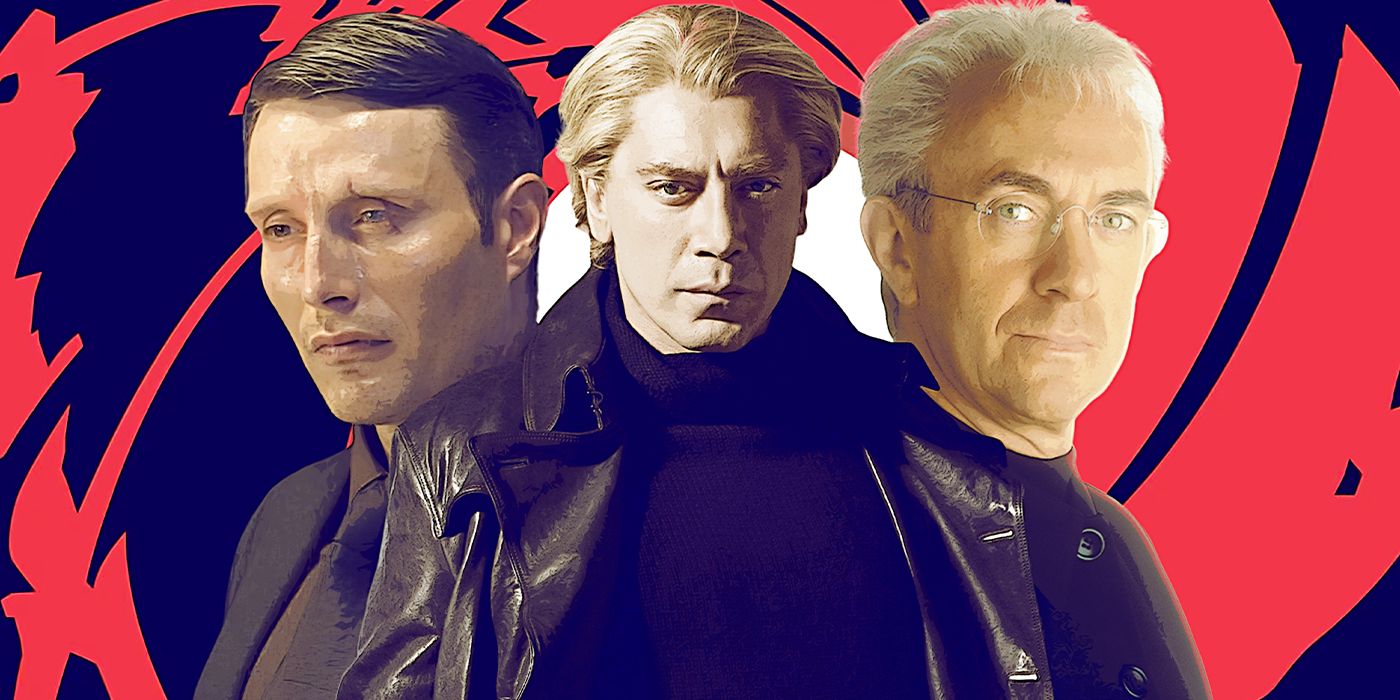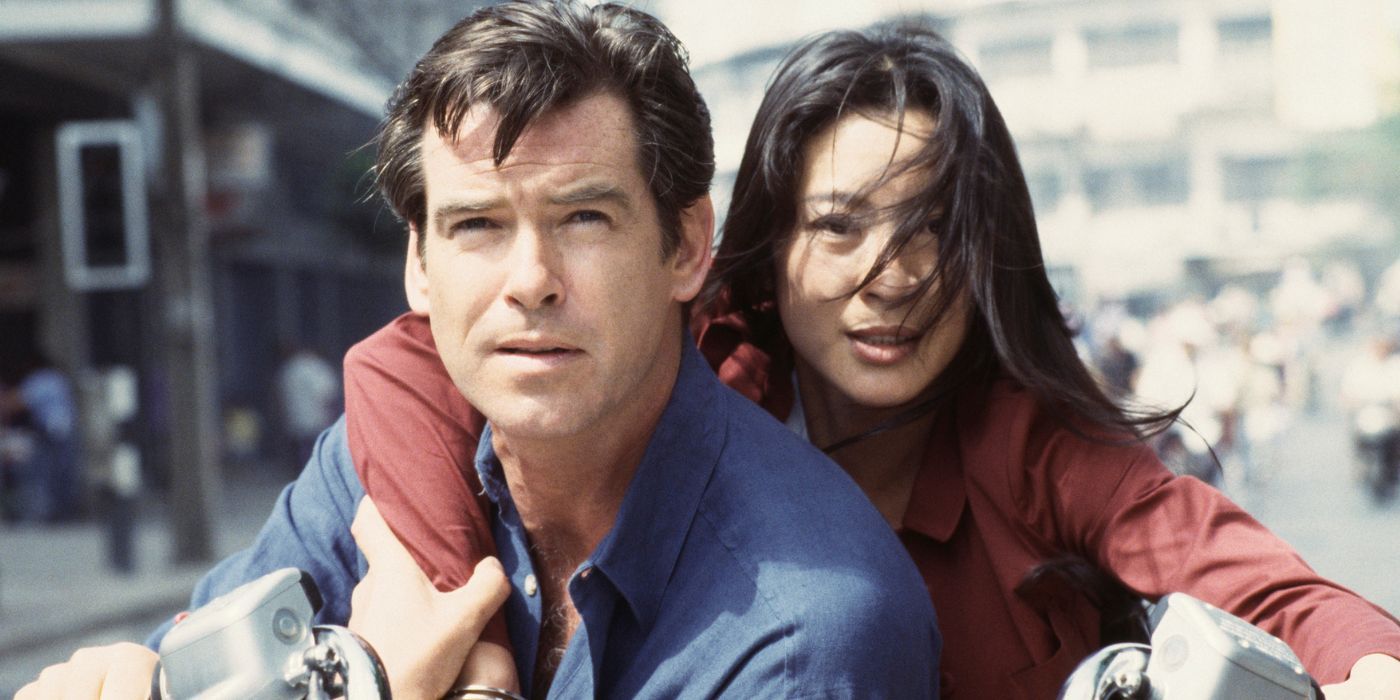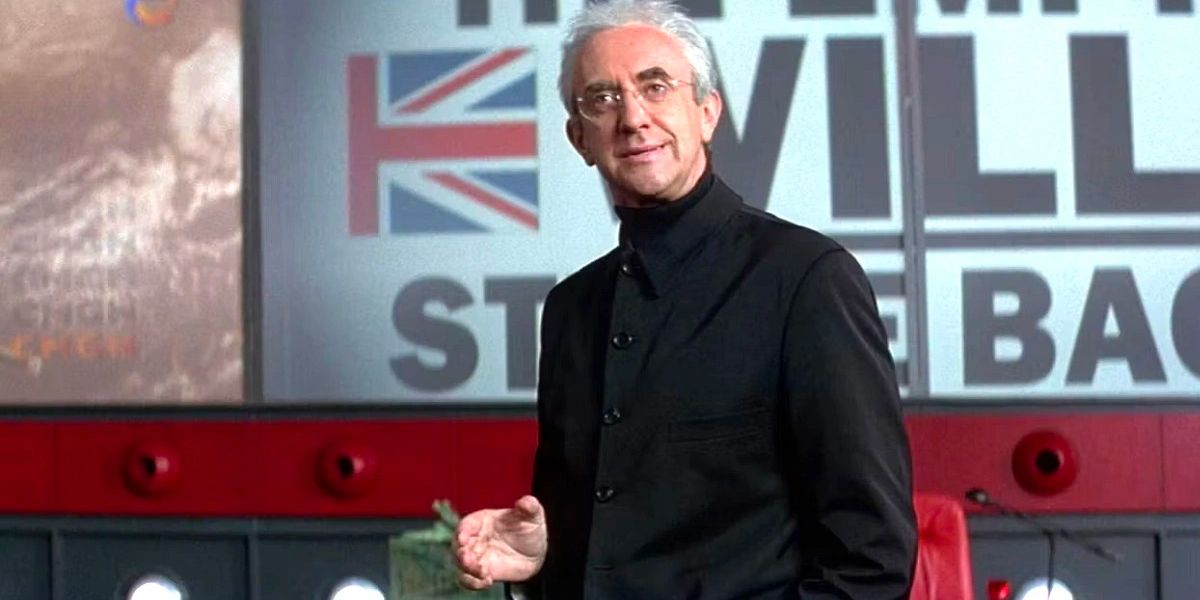James Bond has faced off against many truly terrible villains over the course of his filmography, but none have inflicted more tragedy than this foe.

There’s a popular saying that heroes are only as good as their villains. As is often the case with such “essential rules for storytelling”, there are plenty of examples that counter its validity, but it would take a fool to outright dismiss it.
Conflict is the foundation of all great narratives, and who better to spin a web of hurdles and misfortunes for our protagonist to overcome than a mustache-twirling villain ready to make everyone’s lives miserable? It’s a lesson the James Bond franchise understands perfectly.
Every adventure involving Britain’s most iconic hero offers a full-course meal of malevolent mayhem.
Of course, some are better than others – nobody is putting Dominic Greene (Mathieu Amalric) in the Museum of Great Antagonists alongside Alec Trevelyan (Sean Bean) and Le Chiffre (Mads Mikkelsen) – but nothing that runs for sixty-plus years hits a home run every time.
On the flip side, that longevity has also seen many of Bond’s greatest foes all but disappearing from the public consciousness – a tragedy most notably inflicted upon Elliot Carver (Jonathan Pryce), the crazed media magnet antagonist from Tomorrow Never Dies.
‘Tomorrow Never Dies’ Is an Underrated Bond Film

It’s fitting that such an underrated character would originate from such an underrated film.
Tomorrow Never Dies might not be competing with Goldfinger and On Her Majesty’s Secret Service to be the most beloved entry in the James Bond series, but twenty-six years’ worth of contemplations has seen many of its individual elements ranking highly in subsequent opinion polls.
Michelle Yeoh’s Wai Lin is the obvious example, with her shrewd personality and talent for kicking ass making her a mainstay on all “Greatest Bond Girls” lists (no wonder MGM considered giving her a spin-off).
Similarly, while the exuberant production values and flamboyant action scenes may test the bounds of credibility at every turn – a remote-control car chase through a high-rise parking lot being the obvious example – the playful combination of Roger Spottiswoode’s direction and Pierce Brosnan’s lead performance (nobody has portrayed the sophisticated side of Bond better) makes for some exquisite turn-your-brain-off-and-have-fun escapism.
Throw in an adrenaline-fueled soundtrack by David Arnold and one of the best cold openings in a series that mastered such introductions, and Tomorrow Never Dies has everything it needs to rank as one of Bond’s finest outings.
Elliot Carver’s Once Outlandish Scheme Feels Uncomfortably Real Today
Tomorrow Never Dies introduces Elliot Carver, a Hong Kong-born British media baron (and thinly veiled Rupert Murdoch parody) who has taken it upon himself to be Bond’s latest adversary of the week. Initially, he might not appear too remarkable.
A glance is all one needs to know that he poses no physical threat, and even though it’s traditional for Bond villains to have an evil plan so farfetched it would make Sherlock Holmes delirious, Carver’s plan enters a new realm of absurdity. The year is 1997 and the digital revolution is well and truly underway.
No longer are facts absolute certainties, but tools ready to be twisted by a global elite for their own selfish desires.
Carver, the CEO of the Carver Media Group Network which commands a sizeable portion of the news and entertainment sphere, is one such figure.
Angered by China’s refusal to grant him broadcasting rights, Carver weaponizes his media empire to prod them into conflict with Britain, pushing the world to the brink of total annihilation… unless Bond can stop him, of course (which he does, of course).
It’s ludicrous stuff that largely exists to get us through the usual Bond template, but as with Carver’s innocuous public persona, don’t be fooled by first impressions.
It won’t be long before Tomorrow Never Dies turns thirty, and yet watching it today – with knowledge of the current political landscape that has seen the most undisputable truths becoming the subject of debate – it feels like it was released yesterday.
Its fictionized depiction of the 1990s is not dissimilar to the real 2020s, giving the film a prophetic edge that demands retrospective analysis. Once upon a time, facts were facts and that was that… a quaint existence that now seems entirely alien.
Today, post-truth is ubiquitous in modern-day politics, and watching a fictional character manipulate a subservient audience with a few misleading headlines feels disturbingly real.
Nobody reading Carver’s newspapers cares about the details – all they care about is scratching their itch for an idealistic version of Britain rooted in an imperialist wet dream of the so-called golden years (a service Carver is more than happy to provide).
Such a mantra is at the heart of a current subsect of online ‘journalists’, some of whom have made millions by reporting news designed to confirm biases rather than educate or inform.
Carver’s brand of sensationalized journalism may be heightened for dramatic effect, but it’s not a stone’s throw from reality.
The phrase we’re dancing around here is “fake news” – a term most people would happily eradicate from their minds at this point, but also one that hangs over any contemporary screening of Tomorrow Never Dies like an ominous cloud. Carver never explicitly uses those words, but nothing describes his actions better.
This is a man who revels in disinformation with such passion it could get a restricting order against him, and his refusal to back down even when the need to fan his fragile ego starts costing innocent lives is terrifying to watch (and not unlike certain other power-hungry celebrities whose names need not be mentioned here).
Journalism is an incredible asset that we don’t value enough, but it also has the potential to be a perilous weapon if placed in the wrong hands.
You don’t have to dig deep to find examples of journalists exploiting their profession to bolster themselves financially, and Carver’s plot takes this doctrine to the nth degree.
Mercifully, his schemes never escape the confines of a blockbuster film… just a shame about all those billionaire moguls who mistook Carver as a mentor.
Jonathan Pryce’s Performance Is ‘Tomorrow Never Dies’ Final Touch of Brilliance

Naturally, it’s impossible to discuss Elliot Carver without mentioning the man behind the metallic-framed glasses.
That said, wasting five minutes of the internet’s time to praise a Jonathan Pryce performance might appear superfluous given that Jonathan Pryce always gives a good performance, but his criminally overlooked work on Tomorrow Never Dies demands acknowledgment.
Where a lessor actor would have leaned fully into the character’s theatrical sensibilities, Pryce understands the delicate balancing act that separates a good villain from the bad. His performance is hammy, but only to a point, allowing viewers to buy that he is a credible threat even when he’s delivering such finger-tenting lines as “there’s no news like bad news”.
Pryce is clearly having the time of his life playing evil incarnate (Carver being one of the last ‘classic’ Bond villains where no attempt is made to humanize them), and while there’s no denying the illustrious career he’s built for himself, it’s hard not to watch Tomorrow Never Dies and wish he didn’t embrace his inner pantomime baddie more often.
The most unappreciated part of Ian Fleming’s novels is his approach to villains. Yes, they were all exaggerated caricatures whose primary goal was to be a thorn in James Bond’s side.
Still, they were also vectors to explore tangible – and potentially serious – issues (see how he used Hugo Drax in Moonraker to examine Britain’s unspoken wish to be the world’s foremost superpower again, for example).
Elliot Carver is a natural successor to this philosophy – more so than most of Bond’s onscreen adversaries.
On the one hand, he’s an overblown stereotype who looks like he’s just walked off the set of a cheesy ’80s B-movie, but he’s also a contender for the most plausible antagonist in the series’ history – quite a horrifying combination.
The longer Tomorrow Never Dies ages, the more clairvoyant it gets, and one wonders if things continue as they do that it won’t be long before it starts to resemble an existential horror film.
Until that day (which, with a bit of hope, we’ll never get to) let’s remember what Carver is – a warning against unscrupulous journalists and a manipulative media machine.
The scariest villains are the ones you could imagine living next door… but Carver’s much closer than that.





